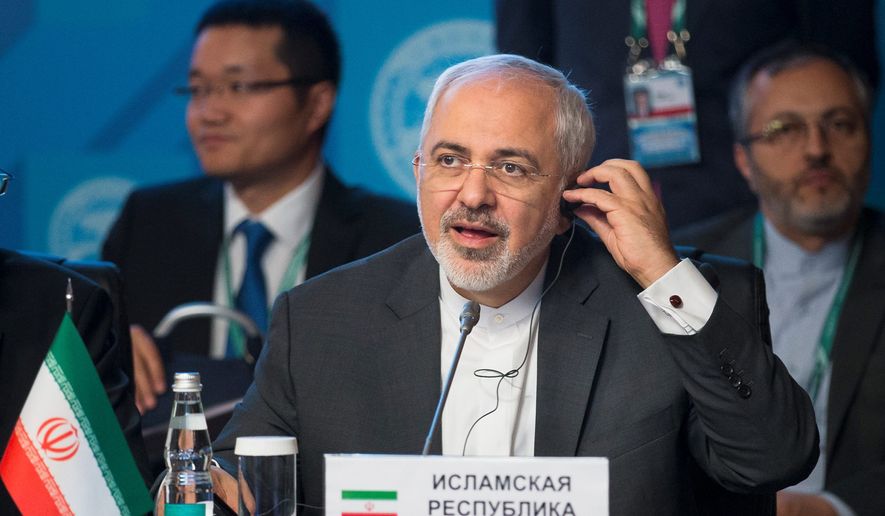The Obama administration is coming under increasing pressure from European allies to extend the deadline for an Iranian nuclear deal beyond June 30, a development that signals doubts about Tehran’s willingness to bargain and complicates the U.S. president’s relations with Congress on the talks.
Administration officials say the deadline — self-imposed by Washington and other powers negotiating with Iran — remains realistic despite signals from Britain and France that it likely will need to be extended amid news that Iran’s parliament wants to block inspections of the nation’s military sites.
State Department spokesman John Kirby said Monday that the “date is not more important than the deal” but stressed that administration officials “continue to be focused on June 30th as the goal and the objective.”
Mr. Kirby said the administration is “not taking a position” on the overwhelming passage by Iran’s parliament Sunday of legislation that calls for U.N. inspectors to be banned from the nation’s non-nuclear military sites and blocked from access to certain nuclear scientists and documents under the terms of any final deal.
The legislation also would give final say over the deal to a council headed by Iran’s supreme leader, Ayatollah Ali Khamenei, who has stated personal opposition to allowing inspections of the non-nuclear sites.
Some in Iran’s parliament reportedly shouted, “Death to America,” while voting for the legislation, but Mr. Kirby sought to downplay that development.
“These are chants we’ve heard before,” he said, adding that such rhetoric won’t have a major impact on the nuclear negotiations.
But there were indications that Washington’s closest allies in the so-called P5+1 — the international negotiating group whose other members are China, Russia, Britain, France and Germany — are increasingly wary.
The U.S. and European delegations have stood together on the position that, for a final accord to be reached, Tehran would have to agree to allow U.N. nuclear inspectors unlimited access to any site in Iran deemed suspicious.
Although the Obama administration appears to be teetering, French and British officials suggest they have no intention of budging.
French Foreign Minister Laurent Fabius told reporters Monday that “a robust agreement is one which includes an extensive verification element including, if necessary, visits to military sites and automatic reintroduction of sanctions if Iran violates the accord.”
British Foreign Secretary Philip Hammond called on Iran to show “more flexibility” and acknowledged that the negotiations could drift beyond the next “week or so.”
“We always expected it would go right to the line and maybe beyond the line,” Mr. Hammond said. “So I think the serious negotiation is now getting underway, and over the next week or so I hope that we will start to see some real progress.”
He spoke as he arrived for a meeting of European Union foreign ministers in Luxembourg, also attended by Iranian Foreign Minister Mohammad Javad Zarif.
Away from the developments in Iran’s parliament, Mr. Zarif seemed eager to express optimism about the talks, saying “there are still differences, some of them technical and others political, but we are trying to finish the work as early as possible.”
But in comments carried on Iranian state media, the Iranian foreign minister said “all sides should avoid excessive demands so as to allow us to reach an accord.”
The negotiations represent the culmination of decades of dispute between Tehran and the West over the Iranian nuclear program. Tehran claims its nuclear activities are for purely peaceful means, while the U.S. and its allies have long accused Iranian leaders of secretly pursuing nuclear weapons.
Political friction has risen as the June 30 deadline approaches for a final deal aimed at curbing the nuclear program in return for a lifting of U.S. and European economic sanctions, in addition to an easing of U.N. sanctions targeting military-related international trade with Iran.
Just as lawmakers in Tehran appear to be trying to block the deal, many in Washington also stand against it.
Tensions soared during recent months between the White House and Congress, where lawmakers from both sides of the aisle have lamented the secrecy surrounding the negotiations.
With only a week left before the deadline, some lawmakers have renewed calls on the administration not to accept anything that gives Iran loopholes to evade U.N. inspections.
Sen. Bob Corker, Tennessee Republican and Senate Foreign Relations Committee chairman, said last week that “the administration should walk away and make good on their promise that no deal is better than a bad deal if there is anything less than full disclosure upfront.”
The tensions between Capitol Hill and the White House subsided some in May with the passage of a bill to give Congress 30 days to weigh in on a final deal after it is signed — and potentially vote to block the administration from lifting sanctions on Iran.
With suspicion rising that a deal may not be reached by June 30, there are questions about how U.S. lawmakers will react. Some are likely to accuse the administration of caving, while others may argue that the White House is holding out for a better deal.
Obama administration officials have said that a successful final deal would ensure that Iran’s “break-out time” for developing a weapon would be at least a year.
Secretary of State John F. Kerry also suggested last week that the U.S. would not demand a full accounting from Iran of all its military nuclear research before concluding a deal.
He and other administration officials are “not fixated on Iran specifically accounting for what they did at one point in time or another,” Mr. Kerry said. “We know what they did. We have no doubt.”
“What we’re concerned about is going forward,” he said.
• This article is based in part on wire service reports.
• Dave Boyer can be reached at dboyer@washingtontimes.com.
• Guy Taylor can be reached at gtaylor@washingtontimes.com.




Please read our comment policy before commenting.